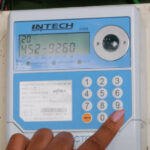Buyer Initiated Invoicing is a tax compliance mechanism where the purchaser, rather than the supplier, generates the tax invoice for goods or services acquired from small-scale suppliers whose annual turnover does not exceed KES 1 million. This approach addresses challenges faced by small-scale traders and farmers who may lack the technological infrastructure or expertise to issue electronic tax invoices. By shifting the invoicing responsibility to the buyer, the system ensures that all transactions are accurately recorded, thereby enhancing transparency and reducing the risk of tax evasion.
Legal Framework and Amendments to the Tax Procedures Act
The implementation of Buyer Initiated Invoicing is grounded in recent amendments to the Tax Procedures Act. The Tax Procedures (Amendment) (No. 2) Bill, 2024, introduced provisions requiring purchasers to issue tax invoices when dealing with small-scale suppliers. This legislative change aims to standardize tax invoicing practices and ensure comprehensive documentation of all business transactions, regardless of the supplier’s capacity to generate electronic invoices.
Step-by-Step Guide to Buyer Initiated Invoicing via *222#
To facilitate the Buyer Initiated Invoicing process, KRA has provided a USSD code (*222#) that allows purchasers to generate and manage invoices conveniently. Below is a detailed guide on how to use this system:
- Dial *222#: Initiate the process by dialing *222# on your mobile phone.
- Select Option 5 (KRA Services): From the menu options provided, choose ‘KRA Services’ to access tax-related functions.
- Select Option 4 (Buyer Initiated): Proceed by selecting ‘Buyer Initiated’ to begin the invoicing process.
- Select Option 1 (Initiate Invoice): Choose ‘Initiate Invoice’ to create a new invoice for your transaction.
- Enter Supplier’s PIN: Input the Personal Identification Number (PIN) of the supplier from whom you are purchasing goods or services.
- Enter Invoice Details: Provide the necessary details, including the invoice number, date of supply, description of goods or services, quantity, and total amount.
- Confirm and Submit: Review the information entered for accuracy, then confirm and submit the invoice.
- Supplier Approval: The supplier will receive a notification prompting them to approve or reject the invoice. They can do this by:
- Dialing *222#: Access the USSD menu.
- Selecting Option 5 (KRA Services): Navigate to ‘KRA Services.’
- Selecting Option 4 (Buyer Initiated): Choose ‘Buyer Initiated.’
- Selecting Option 2 (View Requests): View pending invoice requests.
- Selecting the Relevant Invoice: Choose the invoice to approve or reject.
- Approving or Rejecting: Confirm their decision by selecting the appropriate option.
Once the supplier approves the invoice, it becomes valid and is transmitted to KRA’s system for record-keeping and compliance purposes.
Implications for Businesses
The adoption of Buyer Initiated Invoicing carries several implications for businesses operating in Kenya:
- Enhanced Compliance: By ensuring that all transactions are invoiced and recorded, businesses can demonstrate adherence to tax regulations, thereby minimizing the risk of audits and penalties.
- Inclusion of Small-Scale Suppliers: This system integrates small-scale traders and farmers into the formal economy, providing them with a platform to participate in larger supply chains and access new market opportunities.
- Administrative Responsibility: Purchasers now bear the responsibility of generating tax invoices, which may require additional administrative effort and diligence to ensure accuracy and timeliness.
Addressing Concerns and Challenges
While the Buyer Initiated Invoicing system offers numerous benefits, it also presents certain challenges:
- Technological Accessibility: Both purchasers and suppliers must have access to mobile phones and be familiar with the USSD system to effectively participate in this process.
- Awareness and Training: There is a need for comprehensive education and training programs to familiarize businesses with the new system and ensure seamless adoption.
- Data Accuracy: Ensuring the accuracy of invoice details is crucial to prevent discrepancies that could lead to compliance issues or disputes between buyers and suppliers.
The implementation of Buyer Initiated Invoicing marks a significant step towards enhancing tax compliance and integrating small-scale enterprises into Kenya’s formal economy. By understanding and adopting this system, businesses can contribute to a more transparent and efficient tax environment.
We encourage all business professionals to familiarize themselves with the Buyer Initiated Invoicing process and assess how it impacts their operations. For further guidance and support, consider consulting with tax professionals or reaching out to KRA’s support channels to ensure seamless compliance and to leverage the benefits of this system.





